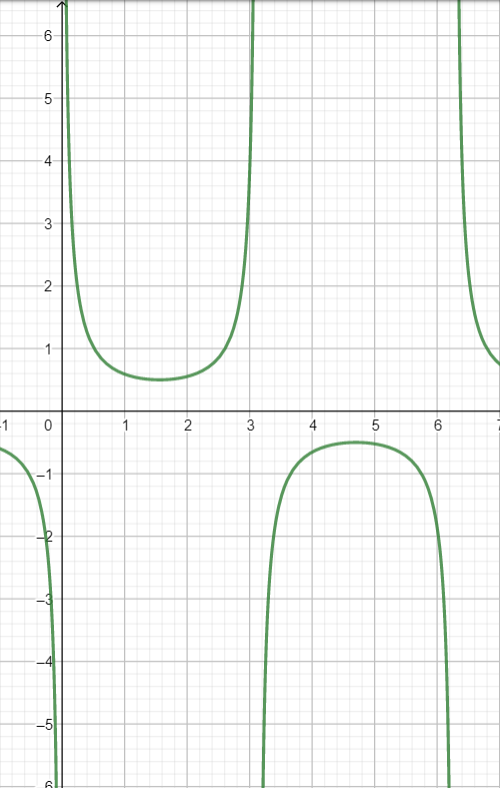Question
Question: How do you find all \(\dfrac{\cos 2x}{\sin 3x-\sin x}\) in the interval \(\left[ 0,2\pi \right)\) ?...
How do you find all sin3x−sinxcos2x in the interval [0,2π) ?
Solution
Firstly, we simplify the above trigonometric function, especially the denominator using trigonometric identities and formula. After evaluating we get simpler trigonometric terms for whom we find the solutions in the range [0,2π) .
Complete step-by-step solution:
The given trigonometric function is y=sin3x−sinxcos2x
Consider the denominator sin3x−sinx
We now simplify this using the trigonometric identity which is,
sinA−sinB=2cos(2A+B)sin(2A−B)
⇒sin3x−sinx=2cos(23x+x)sin(23x−x)
On further evaluating we get,
⇒2cos(24x)sin(22x)
⇒2cos(2x)sin(x)
Now substitute this back into our equation and rewrite the terms accordingly.
⇒y=2cos(2x)sin(x)cos2x
Now rearrange the terms,
⇒y=21(cos2xcos2x)(sin(x)1)
We can further represent one of the terms as, sin(x)1=cosecx
Hence 21cosecx,cos2x=0
Writing the general equation for coes2x=0
Here, 2x=(2n+1)2π;n=0,±1,±2.....
⇒x=(2n+1)4π
Now we know that 21cosecx∈/21(−1,1)=(−21,21)
Now let us substitute the values to get the solutions.
For n=0 ; x=4π
For n=1 ; x=43π
For n=2 ; x=45π
For n=3 ; x=47π
Hence all the values except 4π,43π,45π,47π are the solution for the trigonometric expression.
The graph for the trigonometric function is as follows.

Note: Whenever complex equations are given to solve one must always Firstly start from the complex side and then convert all the terms into sinθ or cosθ . Then combine them into single fractions. Now it is most likely to use Trigonometric identities for the transformations if there are any.
Know when and where to apply the Subtraction-Addition formula. Must check where the Trigonometric functions become negative in which Quadrant to easily find the values in the given range.
